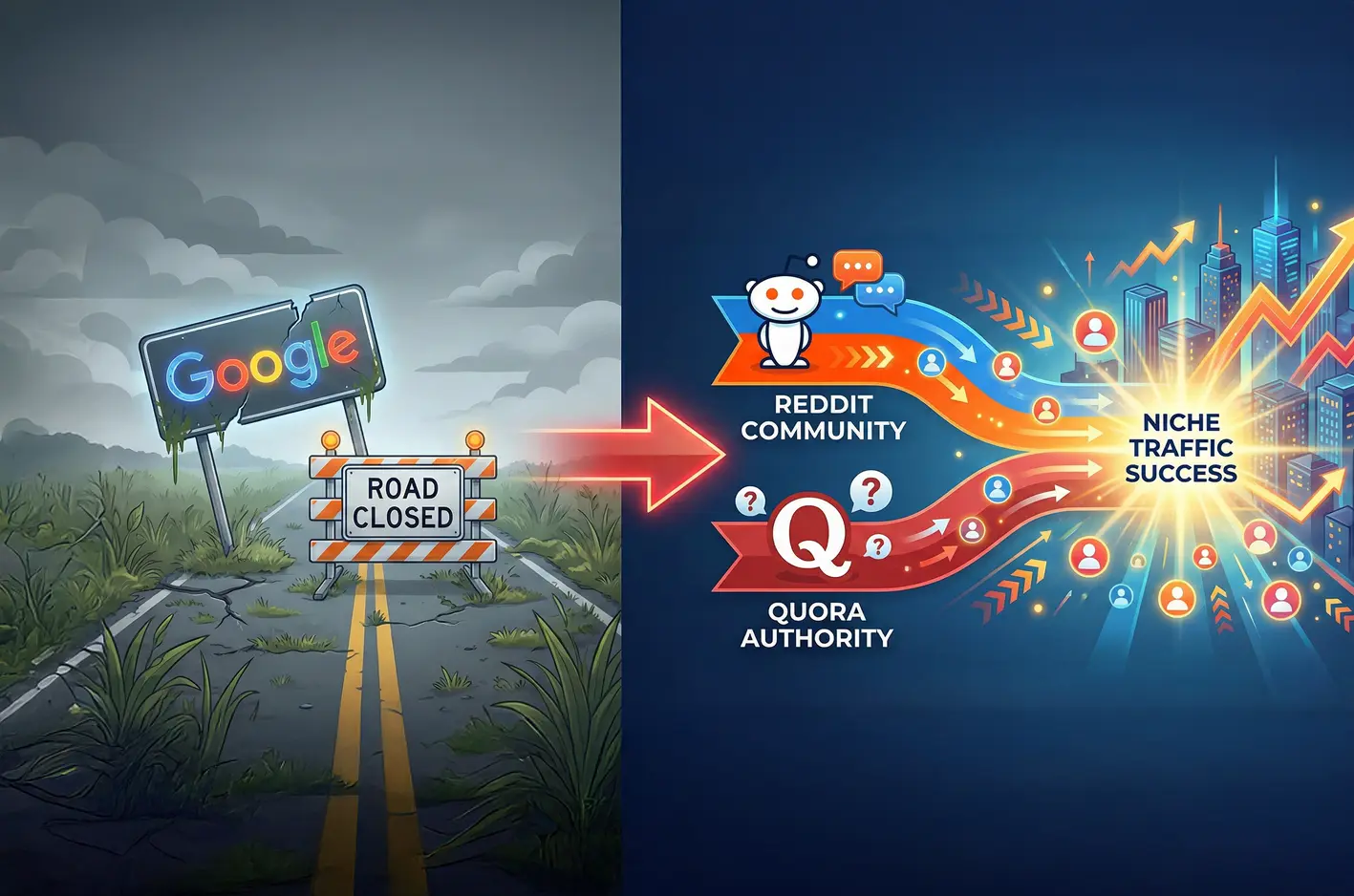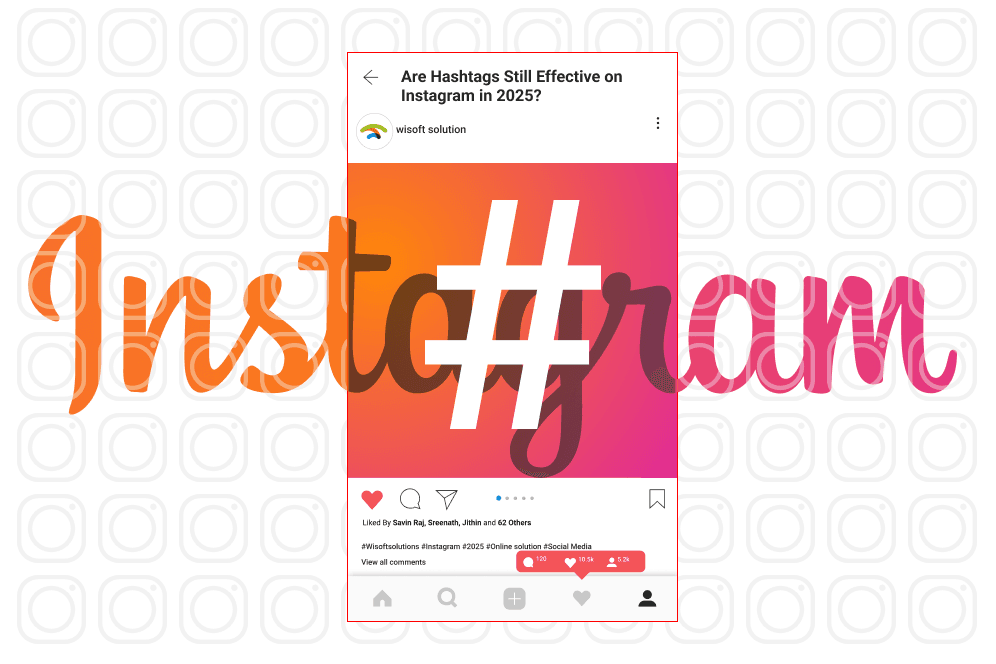The Most Popular Search Engines Today and How They Shape the Way
Reading Time: 7 min

There is something almost universal about the way we use search engines.
Before we buy a product, pick a restaurant, plan a trip, or check a breaking news story, our first instinct is to search. In fact, studies show that over 68 per cent of online experiences start with a search query. That says a lot about how deeply search engines shape our everyday lives and how they influence business growth.
At Wisoft Solutions India, we often tell brands this simple truth: your customers are searching long before they are buying. Which means visibility is not optional anymore. Understanding how search engines work and how people use them is your entry point into stronger SEO, better content planning, and more predictable digital growth.
This guide breaks down the most popular search engines, what makes each one unique, and why they matter for modern businesses.
Why Search Engines Matter More Than Ever
Search engines have quietly become decision-making partners for billions of users. They do more than serve results. They guide choices, shape opinions, and bridge the gap between curiosity and purchase.
A few powerful indicators of this shift:
- Google alone processes around 8.5 billion searches every single day.
- YouTube receives over 3 billion monthly searches, making it the world’s second-largest search engine.
- Facebook processes 1.5 billion searches per day within its ecosystem.
For a business leader, this is more than a set of numbers. This is a clear blueprint that says: your customers are searching. The real question is whether they are finding you when it matters.
1. Google: The Undisputed Leader of Global Search
With nearly 90 per cent of the global search market, Google remains the most widely used search engine on the planet. Its strength lies in understanding user intent, which means it predicts what users need even if they type incomplete queries.
Why Google dominates
- Fast, highly relevant search results.
- Sophisticated indexing that updates constantly.
- Integrated ecosystem with YouTube, Maps, Gmail and Android.
Example: A retail brand working with Wisoft restructured product pages based on Google’s search intent patterns. Within eight weeks, they saw a 42 per cent lift in organic traffic and a noticeable rise in engaged sessions.
Google’s influence is unmatched, which makes it the foundation of any SEO strategy.
2. Bing: The Strongest Alternative for Desktop Users
Bing may have a smaller share, but its presence is stronger on desktop devices. Its integration with Microsoft, Windows, and Edge gives it a substantial advantage.
Why Bing matters
- Higher conversion rates in certain industries.
- Strong performance in North American and European markets.
- Integrated AI features through Microsoft Copilot.
Example: A B2B service provider targeted Bing Ads to reach corporate decision makers who primarily use Windows and Edge. Their lead quality improved noticeably with lower acquisition costs than Google Ads.
3. Yahoo: A Reliable Classic with a Loyal User Base
Yahoo search, powered by Bing, still attracts millions of users. While not a leader today, it maintains relevance because of its strong news ecosystem and integrated email service.
Who uses Yahoo
- Users above 35 years of age.
- Professionals who prefer Yahoo Finance and Yahoo Mail.
Yahoo continues to be useful for brands targeting specific demographic groups.
4. DuckDuckGo: The Privacy First Search Engine
DuckDuckGo appeals to a growing population that values online privacy. With no tracking, no personalised ads, and anonymous search experiences, it is a trusted choice for privacy-conscious users.
Why is it gaining attention?
- Billions of queries processed annually.
- Popular across Europe and the United States.
- Often recommended by tech communities and privacy advocates.
If a brand’s audience includes developers, researchers or privacy-focused users, DuckDuckGo visibility matters.
5. Baidu: The Search Engine of China
Baidu dominates the Chinese search market and has a user base reaching more than a billion people. Since Google is restricted in China, Baidu becomes the default search engine for Chinese consumers.
Business relevance
- Essential for brands targeting Chinese customers or tourists.
- Strong integration with Chinese social platforms and language structures.
6. Yandex: The Leader Across Russia and Surrounding Regions
Yandex holds a significant portion of the search market in Russia and parts of Eastern Europe. It prioritises local relevance, cultural context, and local language patterns.
What makes it unique
- Strong local indexing.
- Accurate results for Cyrillic languages.
- Dominance in Russian-speaking geographical regions.
Brands expanding into these regions must optimise for Yandex in addition to Google.
7. YouTube: The Second Largest Search Engine in the World
Most people do not realise this, but YouTube functions as a search engine as much as a video platform. Users search for tutorials, reviews, product demonstrations, how-to guides and educational content.
Why YouTube matters to business
- Video content drives higher trust than text.
- Users often convert after watching review-style content.
- Great for brand storytelling and expert authority.
Example: A tech brand collaborated with Wisoft to create product walkthrough videos. These videos ranked on YouTube and Google, doubling product page visits in one quarter.
8. Facebook Search: A Social Search Engine with High Intent
Facebook processes around 1.5 billion searches daily. These searches are tied to content people want to explore inside the platform, such as posts, groups, local businesses and events.
Use cases for businesses
- Tracking brand mentions.
- Understanding customer conversations.
- Discovering audience sentiments.
For brands with active communities, Facebook search is a powerful listening tool.
9. Amazon: The Search Engine for Shoppers
Amazon’s A9 algorithm is one of the most powerful e-commerce search engines. Over 60 per cent of product searches begin on Amazon rather than Google.
Why is this important
- If consumers want to buy something, they search on Amazon first.
- Product ranking depends on relevance, reviews, pricing and click history.
Brands selling online need to treat Amazon SEO with the same seriousness as Google SEO.
10. Niche and Privacy-Driven Search Engines Worth Knowing
There are many search engines designed for unique use cases:
- Qwant for privacy and European users.
- Ecosia, which plants trees with ad revenue.
- Startpage, which offers Google results without tracking.
- Swisscows, which uses AI without storing personal data.
- Wolfram Alpha, which answers computational and scientific queries.
These search engines matter because user behaviour is diversifying. People want choices that match their values, such as privacy, sustainability, or technical accuracy.
Choosing the Right Search Engine Strategy for Your Business
The smart approach is not to chase every platform. It is to understand your audience, identify where they search and prioritise accordingly.
A simple rule to begin with:
- Google for universal reach.
- Bing for desktop heavy audiences.
- YouTube for visual learning audiences.
- Amazon for product-based businesses.
- DuckDuckGo and privacy engines for tech-savvy users.
- Yandex or Baidu for specific global markets.
At Wisoft Solutions India, we help businesses identify exactly where their customers search and build SEO and content strategies that align with actual behaviour, not assumptions.
Conclusion: Search Is Evolving and Users Are More Empowered Than Ever
Search engines are not just tools. They are discovery engines that influence how customers learn, compare, trust and buy. From AI-powered search to privacy-first browsing, search behaviour is moving toward more personal, intuitive and contextual experiences.
If your brand wants to remain visible in this shifting landscape, understanding how search engines work is the first step. Optimising for them is the next step.
If you want help navigating SEO, visibility and search performance in a smarter and more structured way, our team at Wisoft Solutions India would love to collaborate with you. Share your goals with us and we will build a search strategy that is simple, clear and designed to deliver results.
FAQs
1. Which search engine is best for most users?
Google remains the most popular because it offers highly relevant results, fast indexing and a seamless user experience across devices.
2. Which search engine is ideal for privacy-focused users?
DuckDuckGo and Qwant are great choices because they do not track search behaviour or store personal data.
3. Is YouTube really a search engine?
Yes. YouTube is the second largest search engine in the world and is widely used for tutorials, reviews and educational content.
4. Should businesses optimise for Bing?
Businesses targeting desktop users or regions where Microsoft is dominant can benefit from Bing’s growing user base and lower competition.
5. Is Amazon a search engine?
Absolutely. Amazon is the primary search platform for shoppers, making Amazon SEO essential for e-commerce brands.

























